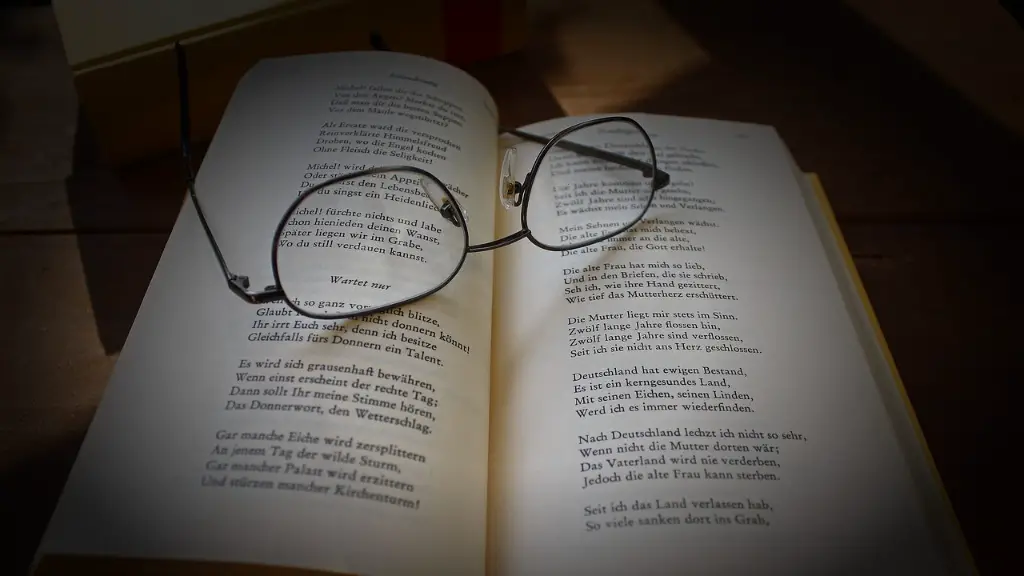Free Verse poetry is a form of literay creation that is characterised by having no fixed meter, rhyme scheme, or line length. It is a modern art form which requires both skill and creativity to communicate the poet’s thoughts and feelings. Free Verse is unique, as it has no fixed form, often centred around very personal and intimate topics. But what is the history of Free Verse? How do poets write it? And, why is it so popular?
The History of Free Verse
The poetry of the English-speaking world in the early 19th century was dominated by classicised forms such as the sonnet, blank verse and heroic couplets. As Modernism began to emerge, however, poets like Walt Whitman and Amy Lowell began experimenting with more free-form, unconventional ways of writing poetry. This led to the rise of the Free Verse movement, a reaction against the strict academic forms of earlier poetry. Free Verse broke poetic conventions, paving the way for a new creative freedom and greater expressive possibilities.
How to Write Free Verse
Writing a piece of Free Verse is not as easy as it looks. Poets must consider both the content and the form, often making the poem difficult to compose. As each poem is unique, there are no specific rules – the poet is free to create their own. But, there are some helpful tips to get started. Firstly, the poet should decide on a topic and explore it deeply, focusing on personal details and drawing on emotions, imagery, and symbolism. Secondly, they should consider the physical form of the poem; think about line breaks, stanzas, and the overall structure. Lastly, think about the sound and flow of the poem; alliteration and assonance, for example will help to create a rhythm pattern.
The Popularity of Free Verse
Since its emergence in the early 20th century, Free Verse has grown in popularity, becoming the preferred poetic form of many influential writers. This is perhaps due to its accessibility and freedom, as well as the way it allows for more creative expression. Its popularity also lies in its ability to transform and express feelings in a very powerful and meaningful way. As well as being a popular form of poetry, it is also used to convey messages and ideas, making it a great tool for both poets and writers alike.
Conclusion
Free Verse is a modern form of poetry that can be used in various ways. It is a unique and expressive art form, which allows poets to communicate personal thoughts, ideas and feelings. It is a powerful tool for both poets and writers, and its popularity continues to grow. Whether you are writing Free Verse for pleasure or as a form of expression, it is essential to consider both the content and the form.
The Impact of Free Verse on Society
Free verse poetry can have a profound impact on society. Its power to express deep-rooted feelings and social issues in an intimate, creative way can help spark discussions, debates, and change. For example, the 20th century poet Emily Dickinson was a pioneer of free verse and her works often contained themes about suffering, loneliness, and death. Reading such works can make readers reflect on their own thoughts and feelings. Similarly, contemporary poets like Langston Hughes used free verse to articulate the African-American experience and how it was (and still is) impacted by racism and oppression.
The Different Types of Free Verse
Free Verse is an incredibly versatile form of poetry, and there are many sub-genres available to poets. There are lyrical, narrative and confessional types of free verse, as well as formless, performance and some more experimental types. Every type of free verse has its own purpose and style and can elicit different responses from readers. It is up to the poet to choose which type suits the poem and their message best.
The Benefits of Writing Free Verse
Writing Free Verse can be incredibly beneficial. It is an extremely therapeutic activity and can help poets to express and release their emotions in a constructive way. Free verse can also help to open up conversations and promote self-reflection, both of which are vital in today’s society. It can also help to develop a voice and bring attention to certain causes and issues. People need to feel their emotions are heard and that their stories are shared – free verse can help to achieve this.
The Challenges of Writing Free Verse
As with any form of writing, there can be some challenges. Writing Free Verse is often seen as more difficult than other forms of poetry due to its lack of structure. This can be off-putting for some poets and as such, it may take them longer to compose than other types of poetry. Furthermore, we live in a society where things need to be ‘right’ – having few rules can be intimidating and can lead to a feeling of not being ‘good enough’. Consequently, this can limit the creative possibilities.
The Value of Free Verse
Free Verse does not always receive recognition and appreciation, as it is often seen as a lesser form of poetry. However, this is not the case. Free Verse is a valuable art form and is essential to artistic expression in today’s society. Its power to convey powerful, personal and intimate concepts should never be underestimated or overlooked. Free Verse can help to bring attention to various issues and can have a positive impact on those that read it, making it an incredibly valuable form of writing.


